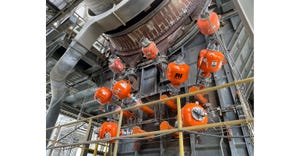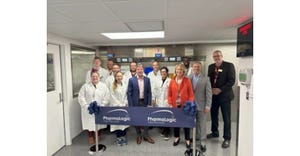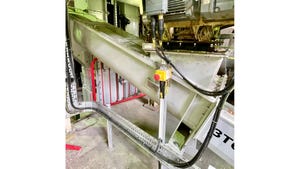December 11, 2009
Record harvests, combined with security concerns, are reshaping the landscape of the grain industry. As more of this staple commodity moves through the food, feed, and fuel supply chains, companies are adopting increased procedure verification and documentation of bulk materials coming through their facilities. One method in high demand is Quality Management Systems (QMS).
“Quality Management Systems are widely used in many industries to evaluate, streamline, and organize manufacturing to make better products more closely matched to customer needs. Grain elevators and processing plants are no different,” says Dr. Charles Hurburgh, professor of agricultural engineering at Iowa State University.
Hurburgh, a longtime proponent of the benefits of QMS methodology, sees grain elevators and other processing facilities as a natural match for the benefits of a QMS. QMS programs can assist with site security, risk management, traceability, safety programs, regulatory compliance, and more, at grain facilities of any size. Many are created and monitored by the International Organization for Standardization (ISO), making QMS suitable for companies that do business internationally. Several larger companies have developed such internal systems for monitoring and standardizing their operations, but what about small or mid-sized companies?
Hurburgh saw a need in the industry for reliable training on Quality Management Systems for grain handing and processing facilities, particularly those without standardized processes in place. He approached the GEAPS-KSU distance-education program with an offer to produce a course with the needs of the changing agriculture industry in mind.
The result? “Quality Management Systems for Bulk Materials Handling Operations,” the newest GEAPS-KSU offering, will take place January 11-February 12. The course will introduce the structure, format, and characteristics of QMS in a bulk handling scenario and give students the tools they need to implement QMS at their companies.
“The GEAPS-KSU distance learning program is a known leader in grain operations professional development, and I’m pleased to have had the opportunity to create this course,” said Hurburgh. “I think it will prove invaluable to workers at facilities of all sizes. A QMS can be an extremely effective, economical way to evaluate strengths and weaknesses at your facility, streamline documentation, analyze data, and come out ahead both financially and in terms of safety.”
While QMS can benefit a grain facility of any size, they can be particularly beneficial to smaller companies, said Hurburgh. “With these procedures in place, inventory control can be improved, and meeting the various regulations that require documentation and procedures — such as safety, bioterrorism, and site security — is made much simpler and less expensive.”
Students of “Quality Management Systems for Bulk Materials Handling Operations” will learn to use QMS as a solution to procedures-based business needs like inventory management, biosecurity, safety, risk mitigation, and regulatory compliance. Students will also learn to lay out a quality manual in the ISO 9001:2008 format, an internationally recognized standard, making the course suitable for employees at non-U.S. companies.
For grain facilities, that means the confidence of knowing you are a safe point on the supply chain, and better monitoring of your company’s bottom line. Organizations that use QMS systems to analyze and improve their operations have found that costs of increased documentation are quickly outweighed by operational efficiency gains.
Complete information on “Quality Management Systems for Bulk Materials Handling Operations” is available at www.geaps.com.
You May Also Like


